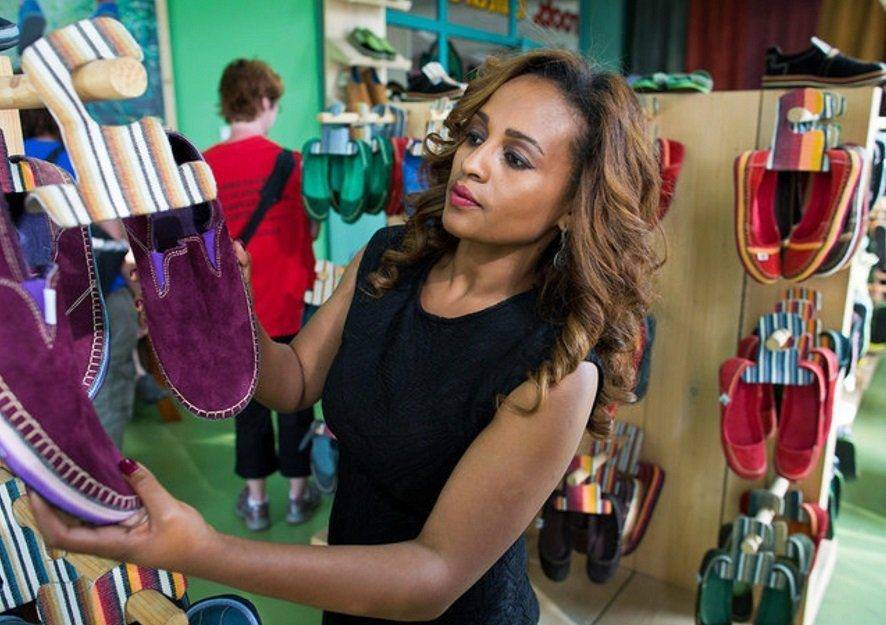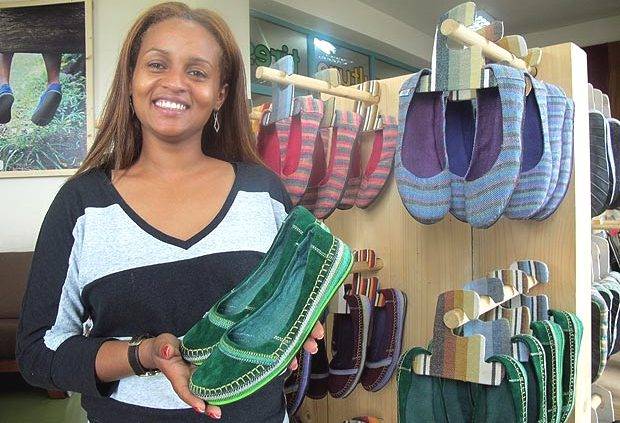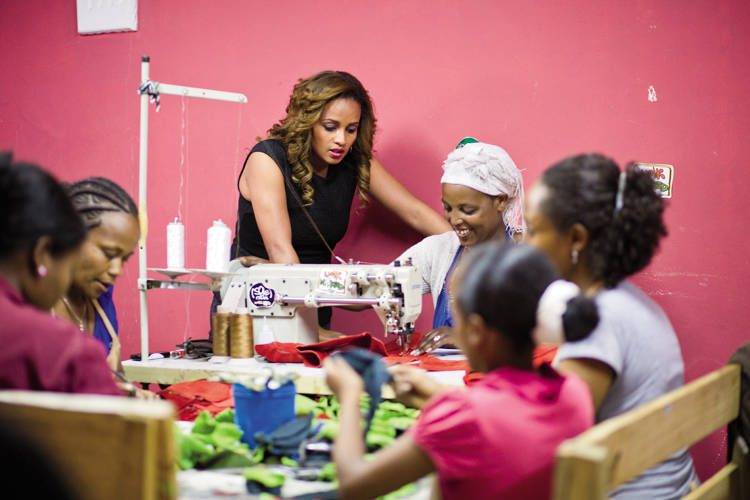The Entrepreneur
Evans Nyagaka Anyona: From Maize Seller to Transport Tycoon
“If you have a vision and you’re willing to work hard for it, nothing can stop you,” Evans Nyagaka says. “I may not have had the best start, but I’ve always believed in my ability to create something meaningful.”

Discover how Evans Nyagaka Anyona, founder of ENA Coach and co-owner of Transline Classic, rose from selling maize to leading Kenya’s transport industry.
By Charles Wachira
In Kenya’s bustling transport industry, few names are as prominent as Evans Nyagaka Anyona, the entrepreneur behind ENA Coach and co-owner of Transline Classic Ltd.
His journey from a maize seller to a transport magnate is a testament to resilience, strategic vision, and the ability to seize opportunities, no matter how dire the circumstances.
Born and raised in Kisii County, Evans’s life was marked by hardship early on.
He lost his father when he was still in Class Six, leaving his mother, a widow, to raise him and his siblings.
Despite the financial struggles, his mother managed to support his education up to the O-level.
However, after Evans scored a D in his Form Four exams,not a very impressive mark and his academic journey came to a halt due to a lack of school fees.
This setback did not deter him. Instead, it became the catalyst that pushed Evans to embrace entrepreneurship.
With limited options, he ventured into selling maize in 1992 during a severe drought that hit Kenya.
The country was reeling from a food shortage, and Evans saw a business opportunity. He purchased maize at KSh 7 per tin and sold it at KSh 35 as the prices surged due to the scarcity, earning him a significant profit.
“I realized that sometimes, the toughest challenges present the best opportunities,” Evans recalls. “That’s how my entrepreneurial journey started.”
With the proceeds from his maize-selling business, Evans opened a small shop, which eventually grew into a wholesale outlet. His ventures were paying off, but his ambitions were far from satisfied.
The Birth of Transline Classic
In the early 2000s, Evans transitioned from retail to public transport. He bought a small pick-up truck, which he modified into a “seven-aside” matatu, where passengers sat facing each other.
The unique design worked well, and his new matatu business quickly gained traction. Soon, he expanded his fleet, purchasing seven more pick-ups before upgrading to Toyota and Nissan matatus, which were more popular and reliable for long-distance travel.
The turning point came in 2005 when Evans co-founded Transline Classic Ltd, a company that initially focused on the Nairobi-Kisii route.
Alongside his business partners, James Bichange and Haron Kamau, Evans took the first major step toward building a transport empire.
They started with three buses, purchased through a loan from Equity Bank, a move that was risky but necessary to scale their operations. The company quickly grew, expanding its fleet and routes as demand for their services soared.
“We saw an opportunity in offering reliable, comfortable, and affordable travel for passengers, especially on the Nairobi-Kisii route, where the demand was growing fast,” says Evans. “It wasn’t easy at first, but with persistence, we began to expand.”
By 2012, Transline Classic had grown its fleet to 24 buses, and today the company boasts over 80 buses and 11-seater shuttles that operate across multiple routes, including Nairobi to Kisii, Kisumu, Eldoret, Busia, Bungoma, and Kitale.
Innovation and Growth
What set Transline Classic apart from its competitors was Evans’s commitment to passenger comfort and modern amenities. The buses were fitted with features that appealed to the modern traveler—TV screens, free Wi-Fi, charging ports at every seat, and entertainment systems—offering an experience that went beyond the traditional matatu service. Evans recognized that by improving the overall experience, he could attract more passengers, and this strategy paid off.
“We wanted to ensure our passengers felt valued. That’s why we invested in providing comfort and services that made their journeys more enjoyable,” Evans explains. “It’s not just about getting someone from point A to point B; it’s about how they feel during that journey.”
The company’s rapid expansion was also driven by its ability to adapt to changing market dynamics. Evans introduced smaller 14-seater matatus and 11-seater shuttles for routes that required less capacity, a move that allowed Transline Classic to tap into underserved areas while maintaining operational efficiency.
ENA Coach: A New Chapter
Following the success of Transline Classic, Evans launched ENA Coach, a new bus company that expanded his footprint in the Kenyan transport sector. ENA Coach became known for its reliable and high-quality services, particularly on long-distance routes. It quickly gained a strong reputation, becoming a go-to option for travelers across the country.
Partnerships and Diversification
Evans’s success story also highlights the power of strategic partnerships. His long-time business associate, James Bichange, brought in matatus that helped form the backbone of their fleet, while Haron Kamau, who later founded Overseas Buses and owns Kamel Park Hotel in Kisii, was also instrumental in the early stages of their business ventures. These collaborations were crucial in establishing a strong foundation for Transline Classic and its subsequent growth.
“I’ve always believed in the strength of partnerships,” says Evans. “Having the right people by your side makes all the difference in business.”
In addition to his transport ventures, Evans has diversified his investments, including interests in real estate and agriculture. His ability to balance multiple businesses while keeping Transline Classic and ENA Coach at the forefront of Kenya’s transport industry has earned him the respect of his peers and made him a role model for young entrepreneurs.
A Legacy of Resilience
Evans Nyagaka Anyona’s journey from selling maize during a drought to becoming one of Kenya’s most successful transport entrepreneurs is a powerful reminder that education, while important, is not the only path to success.
His resilience in the face of adversity, combined with his keen business instincts and willingness to take risks, has built a transport empire that serves thousands of Kenyans daily.
Today, Transline Classic and ENA Coach operate across Kenya, providing jobs for hundreds of drivers, conductors, and support staff. Evans’s story is an inspiration for anyone looking to overcome life’s challenges and build a better future for themselves and their community.
“If you have a vision and you’re willing to work hard for it, nothing can stop you,” Evans says. “I may not have had the best start, but I’ve always believed in my ability to create something meaningful.”
With a fleet of over 80 buses and a growing business empire, Evans Nyagaka Anyona is proof that with determination and strategic thinking, even the most humble beginnings can lead to extraordinary success.
Keywords:Evans Nyagaka Anyona, ENA Coach, Transline Classic, Kenyan transport industry, entrepreneurship in Kenya
She Business
Bethlehem Tilahun Alemu: From Ethiopian Artisan to Global Icon

: Discover how Bethlehem Tilahun Alemu built SoleRebels into a global,
sustainable footwear brand, overcoming challenges and transforming Ethiopian
craftsmanship.
Bethlehem Tilahun Alemu’s story begins in Zenabwork, a modest village on the outskirts
of Addis Ababa, Ethiopia. Growing up, she watched her community struggle with unemployment and poverty, despite a rich heritage of artisanal skills that remained largely untapped.

Fueled by determination and a desire to transform her surroundings, Bethlehem
embarked on a journey that would redefine African entrepreneurship and put Ethiopia
on the global map.
Her creation, SoleRebels, isn’t just a footwear brand. It’s a movement—an embodiment
of sustainability, culture, and empowerment.
A DREAM WOVEN WITH TRADITION
In 2005, Bethlehem founded SoleRebels with a simple yet powerful idea: to turn
Ethiopia’s rich artisanal craftsmanship into eco-friendly, globally competitive footwear.
Inspired by traditional “selate” shoes—made from recycled tyres—she envisioned a
brand that blended cultural authenticity with modern design.
She recruited local artisans, many of whom were unemployed, and encouraged them to
innovate while preserving traditional techniques.
Every pair of shoes was a masterpiece, crafted from hand-spun cotton, organic
materials, and repurposed car tyres. Bethlehem’s concept was groundbreaking: a product that told a story while making a global impact.
STARTING FROM SCRATCH
Like many entrepreneurs, Bethlehem’s initial challenge was capital.
With no access to bank loans or large investors, she relied on personal savings and
modest contributions from her family.
Slowly but surely, she built her business, reinvesting profits into training workers and
improving production tools. International grants and initiatives like the SEED Initiative later recognized the potential of her venture, providing additional support.

The early days weren’t easy. Artisans lacked modern tools, and accessing raw
materials was an uphill battle. But Bethlehem, known for her tenacity, tackled these challenges head-on. She developed partnerships with local suppliers to ensure a consistent supply of quality materials and invested in upskilling her workforce.
Breaking into the global market presented another hurdle. Competing against established brands seemed daunting, but Bethlehem found her edge: sustainability and ethical production.
In an era when consumers were becoming eco-conscious, SoleRebels’ ethos of fair wages, recycled materials, and cultural storytelling resonated deeply.
BUILDING A GLOBAL EMPIRE
Fast forward to today, and SoleRebels has a presence in over 30 countries, with
flagship stores in cities like San Francisco, Tokyo, and Barcelona.
It is also the first African footwear brand to be certified by the World Fair Trade
Organization (WFTO)—a testament to Bethlehem’s commitment to doing business the
right way.
Her company directly and indirectly employs over 1,200 people, making it one of
Ethiopia’s largest employers in the artisan sector.
Workers earn more than three times the industry average, a policy Bethlehem takes
immense pride in. “When we pay people well, we don’t just change lives—we transform
communities,” she says.

MENTORS AND INSPIRATIONS
Bethlehem often credits her late grandfather, a farmer and community leader, as her
greatest mentor.
His work ethic and deep belief in the power of local communities shaped her vision. She
also draws inspiration from global leaders, including Ethiopian Prime Minister Abiy
Ahmed, whose focus on innovation and economic growth aligns with her goals.
RISING ABOVE CHALLENGES
Bethlehem’s entrepreneurial journey has been marked by resilience. When production
scaled up, she faced supply chain disruptions that threatened deadlines. Her solution?
Cultivate long-term relationships with reliable local suppliers and diversify material
sources.
Entering new markets came with its own set of obstacles. Competing against
established brands requires a unique value proposition.

SoleRebels offered more than shoes—it offered a story: a product steeped in Ethiopian
culture, made sustainably, and crafted ethically.
VISION FOR THE FUTURE
Bethlehem isn’t slowing down. Her plans include:
- ● Expanding SoleRebels’ retail presence in Europe and Asia.
- ● Introducing sustainable clothing lines.
- ● Partnering with global brands to promote eco-friendly production in Africa.
Beyond SoleRebels, Bethlehem has a broader mission: to inspire a new narrative for
African entrepreneurship. She wants to show the world that Africa isn’t just a consumer
market but a hub for innovation and excellence.
CONCLUSION: WALKING THE TALK
Bethlehem Tilahun Alemu has redefined what it means to be an entrepreneur. From
Zenabwork’s dirt roads to the global stage, she has shown that success doesn’t come
from resources alone—it comes from vision, grit, and a deep connection to one’s roots.
With SoleRebels, Bethlehem has not only created a thriving business but a model for
how sustainable, ethical enterprises can transform communities. As she continues to
dream big, her footsteps pave the way for the next generation of African changemakers.
She Business
Joyce Akinyi Convicted: Heroin Smuggling Case Exposed

: Kenyan businesswoman Joyce Akinyi faces life imprisonment after being found
guilty of smuggling heroin worth US$ 34,483. Her history with crime has now
unravelled.
Joyce Teresia Akinyi’s story is one of dramatic highs and lows—rising from a successful
businesswoman to being convicted of a large-scale heroin smuggling operation.
With ties to international criminal networks, high-profile relationships, and repeated run-
ins with the law, Akinyi’s life has been marked by controversy and legal battles.
THE HIGH LIFE: BUSINESS AND INFLUENCE
Akinyi first gained prominence as the upscale Deep West Resort owner in Lang’ata,
Nairobi. Known for her affluent lifestyle, she mingled with Kenya’s elite and maintained
significant business interests.
However, behind the glamorous facade lay a darker world of alleged criminal activity.
Her personal life was equally turbulent. In 1998, she met Nigerian businessman Anthony Chinedu, and the couple had two children before formalising their union.

Their relationship was rocky, marked by numerous arrests on drug trafficking charges.
In 2013, Chinedu was deported from Kenya after authorities seized drugs in his
possession, a move that further exposed Akinyi to public scrutiny.
A HISTORY OF LEGAL TROUBLES
Over the years, Akinyi faced repeated allegations of drug trafficking. Her name became
prominent in 2008 when she was arrested in New Delhi, India, alongside former
Budalang’i MP Raphael Wanjala.
Authorities detained the pair with undeclared cash worth Sh7.59 million, suspected to
be linked to drug deals. Although released after intervention by the Kenyan government, the incident marked the start of a string of legal troubles for Akinyi.
In 2013, she and Wanjala were arrested again on the Nairobi-Namanga highway with a
suspicious white powder. Although they claimed it was corn flour, suspicions persisted,
and Akinyi’s criminal associations deepened.
THE TURNING POINT: CONVICTION FOR HERION SMUGGLING
Akinyi’s criminal activities reached a dramatic conclusion in 2019 when a police raid on
Deep West Resort uncovered 2kg of heroin worth Sh5 million hidden in a shoe rack.
The Anti-Narcotics Directorate linked the operation to an international smuggling
network coordinated by Akinyi.
The Jomo Kenyatta International Airport Tribunal found Akinyi guilty under Article
4(a) of the Narcotic Drugs and Psychotropic Substances Control Act, which
mandates life imprisonment for drug trafficking.
The court heard compelling evidence, including photographs of heroin wrapped in white
tape, voice recordings coordinating smuggling activities, and the discovery of a Tabita
Digital Scale used to weigh drugs.
Akinyi’s co-defendants, Paulin Kalala Musankinshay and Peres Adhiambo, were
similarly implicated. Evidence also revealed that Akinyi used multiple fake passports, including a Congolese passport in the names of “Mape Marline Kambura” and “Raha Eveline
Kambere,” enabling her to operate under different aliases.
FINANCIAL CRIMES AND ASSET RECOVERY
Beyond drug trafficking, Akinyi’s wealth came under scrutiny. In 2021, she lost two
luxury vehicles worth Sh20 million to the State, deemed proceeds of crime.
Investigations by the Asset Recovery Agency revealed that Akinyi deposited
suspiciously large sums ranging from Sh60,000 to Sh20 million into various bank
accounts. Her real estate investments—villas built and rented out—further indicated
illicit income sources.
THE END OF THE ROAD
On December 10, 2024, Akinyi faces sentencing, which could include life
imprisonment and a Sh5 million fine. Her fall from grace highlights the dangers of
unchecked ambition and illegal pursuits. Magistrate Njeri Thuku, who presided over the
case, dismissed Akinyi’s defence that the drugs were planted by her estranged husband
Chinedu, calling it baseless.
CONCLUSION
From her meteoric rise as a business mogul to her conviction as a drug trafficker, Joyce
Akinyi’s life is a cautionary tale of how power, wealth, and crime can intertwine.
Her story also underscores Kenya’s ongoing battle with drug trafficking and the far-reaching
consequences of organised crime. For Akinyi, the glitz and glamour of her former life
have now given way to the stark reality of justice.
Nb: Exchange rate 1 USD = 145 Ksh
The Entrepreneur
Miss Rwanda 2022, Divine Muheto, Faces Drink-Driving Scandal

: Miss Rwanda 2022, Divine Muheto, was arrested for drink-driving, fined, and
detained after a car crash. She expresses regret and seeks forgiveness for her
actions.
From Beauty Queen to Legal Controversy
Divine Muheto, 21, crowned Miss Rwanda 2022, rose to prominence as a symbol of
beauty and ambition. She always believed she had what it took to achieve her childhood
dream of becoming a beauty queen.
Her journey began after high school when she entered the Miss Rwanda competition,
ultimately claiming the coveted title.
Reflecting on her success, she once said, “When you fear, you can’t make anything
different in life, but when you are fearless, a lot of positive things come your way.”
Legal Troubles in 2024
However, her reign as Miss Rwanda has been overshadowed by controversy. In late
2024, Muheto was arrested following a drink-driving incident in Kigali.

Reports from the Rwanda National Police (RNP) confirmed that she was caught driving
under the influence of alcohol without a valid license, resulting in a crash that destroyed
public infrastructure, including a street light pole and palm trees.
The police also noted that Muheto fled the scene of the accident. She was subsequently
fined 190,000 Rwandan francs (approximately $140) and detained.
This incident marked a troubling pattern, as the beauty queen had previously faced
similar charges in September 2023, when she crashed her car into a building while
driving drunk.
Silent Remorse and Public Engagement
Muheto, the daughter of Assistant Commissioner of Police Francis Muheto, has
remained largely silent in the media following her arrest, though her legal team has
expressed that she deeply regrets her actions and has sought forgiveness.
Despite this, she continues to be a public figure, engaged in various activities. Her legal troubleshave raised concerns, but she remains resolute in her belief that life’s challenges present growth opportunities.

Inspirational Messages and Support System
While her parents have largely stayed out of the spotlight, Divine Muheto has continued
to inspire many young people in Rwanda, emphasising resilience and self-improvement.
She once said, “I knew I had what it takes to the last dot,” and even in the face of
adversity, she strives to move forward, learning from her mistakes and striving to make
a positive impact.
-

 Politics5 months ago
Politics5 months agoFred Okengo Matiang’i vs. President William Ruto: A 2027 Election Showdown
-

 Business & Money10 months ago
Business & Money10 months agoEquity Group Announces Kshs 15.1 Billion Dividend Amid Strong Performance
-

 Politics4 months ago
Politics4 months agoIchung’wah Faces Mt. Kenya Backlash Over Gachagua Impeachment Support
-

 Politics6 months ago
Politics6 months agoPresident Ruto’s Bold Cabinet Dismissal Sparks Hope for Change
-

 Politics7 months ago
Politics7 months agoPresident Ruto’s Lavish Spending Amid Kenya’s Economic Struggles Sparks Outrage
-

 Politics6 months ago
Politics6 months agoJohn Mbadi Takes Over Kenya’s Treasury: Challenges Ahead
-

 Business & Money2 months ago
Business & Money2 months agoMeet Kariuki Ngari: Standard Chartered Bank’s new CEO of Africa. What’s Next?
-

 Politics7 months ago
Politics7 months agoKenya Grapples with Investor Confidence Crisis Amid Tax Protest Fallout





